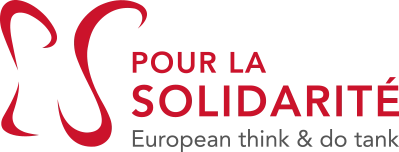This new project aims to fill a significant gap in the understanding and management of the nutritional needs of people with autism. The initial conclusion is clear: despite the crying needs in this area, existing resources remain limited, and both professionals working in autism facilities and nutrition experts show a lack of awareness of the dietary issues specific to this population.
The report Disability and nutrition programming: evidence and learning, by Jenny Holden and Nick Corby on February 28, 2019, highlights a major gap in the development of national nutrition plans, largely ignoring the specific needs of people with autism and disabilities in general. Paola Scano, founder of A18, professor of nutrition at the University of Cagliari (Italy) and one of the project’s partners, highlighted the significant impact of specific medications administered to autistic adults, leading to substantial nutritional disorders. In addition, malnutrition such as obesity and dietary imbalances are frequently observed in autistic people, exacerbating their social exclusion and hindering their autonomy. The APIA project aims to remedy these shortcomings, offering a unique opportunity to address the urgent food needs of this often neglected population.
Objectives
- Understanding the specific nutritional needs of people with autism;
- Enrich the theoretical content on the link between autism and food for those working in the field of autism;
- Promote the development of the skills of carers working with autistic people through the practical application of tools ;
- Raise awareness among professionals working in the field of autism in the broadest sense of the term on the subject of nutrition for people with autism.
What for?
In order to meet these objectives, APIA proposes to create three main productions:
- An overview of autism and food in Europe, based on a literature review and qualitative and quantitative interviews with professionals;
- A theoretical guide to autism and food for professionals working with this population;
- A practical guide designed to provide professionals with support tools for implementing cooking workshops with autistic people;
By whom?
- Les Insatiables (formerly Silver Fourchette) (Groupe SOS, France). Committed to grassroots initiatives, Les Insatiables goes out to meet seniors and those who support them, to offer them practical, educational and positive ways of eating well, and to give them the keys to taking action on their health.
- POUR LA SOLDARITÉ-PLS (Belgium), an independent European think & do tank committed to a Europe of solidarity and sustainability, working to defend and consolidate the European social model, a subtle balance between economic development and social justice.
- CADIS Huesca (Spain), a federation of 29 associations active in the Huesca region. These organizations provide services for people with all kinds of disabilities: physical, sensory, intellectual, mental disorders and neurological illnesses such as multiple sclerosis, Parkinson’s or Alzheimer’s disease. Adults with autism are also included.
- Fondazione per l’Autismo A18 (Italy), a non-profit organization founded by the family of an autistic person, is based in Cagliari (Sardinia), Italy. Its aim is to create and disseminate a culture, knowledge and best practices on autism, particularly in adulthood.
- Universidad de Zaragoza (Spain), a Spanish public teaching and research institution that combines nearly five centuries of history (since 1542) with a constantly updated range of courses. The Universidad de Zaragoza (UniZAR) has over 33,000 students, 5,100 teaching and research staff and more than 1,800 administrative and service personnel.
The APIA project is co-financed by the European Erasmus+ program.
![]()

